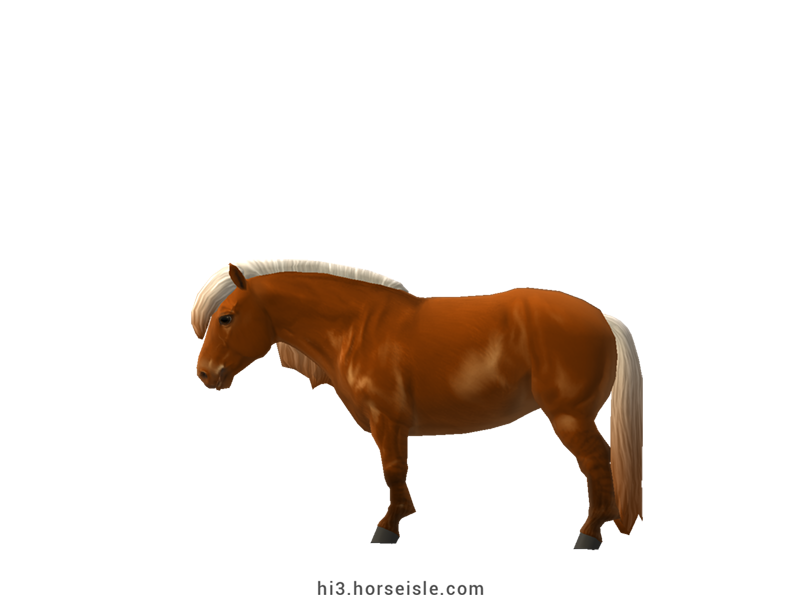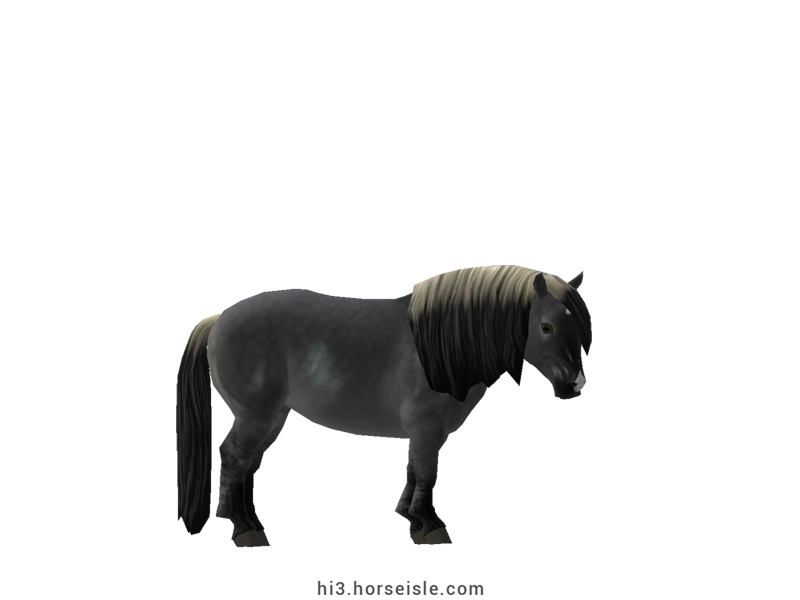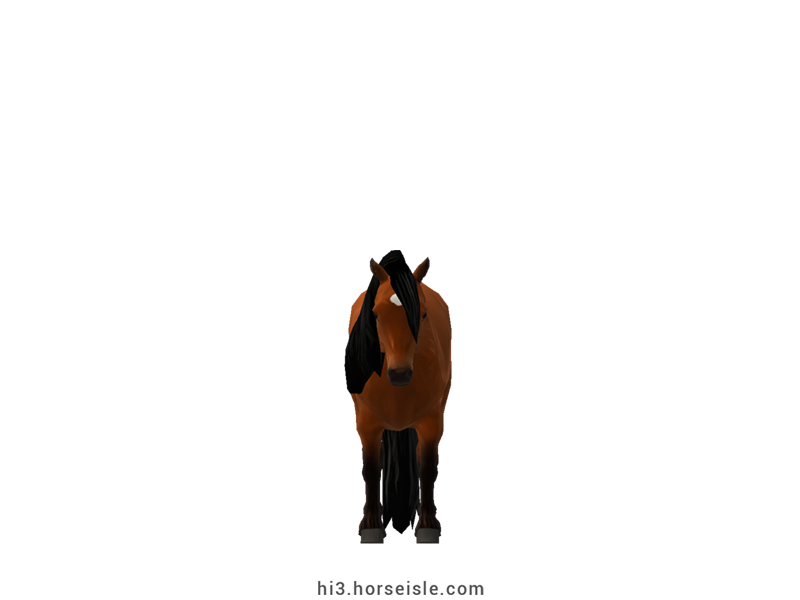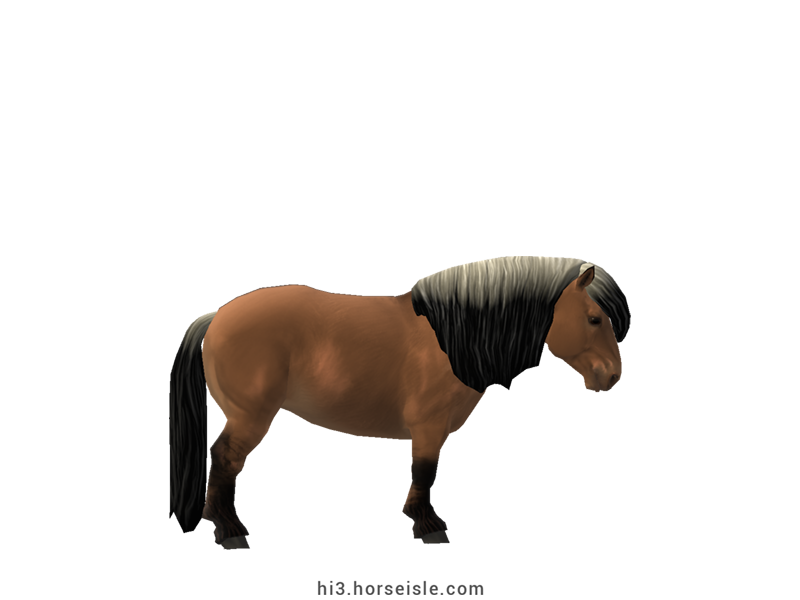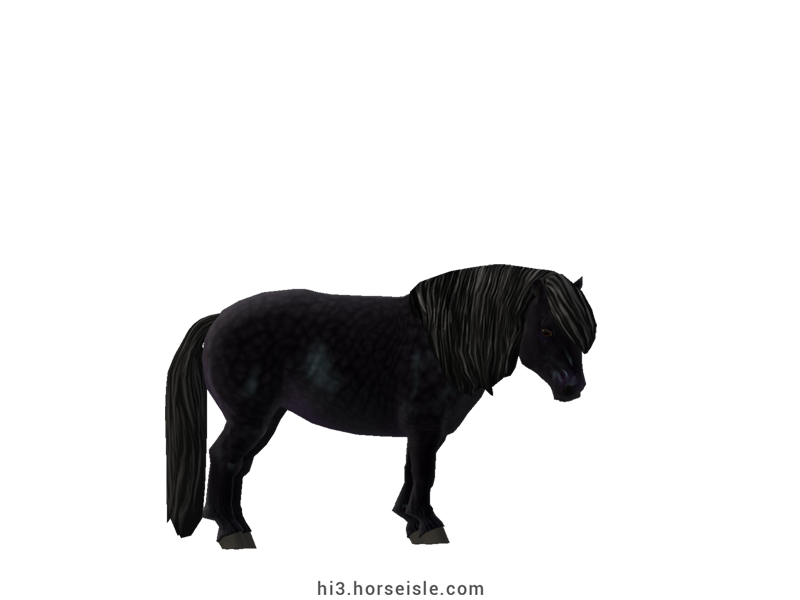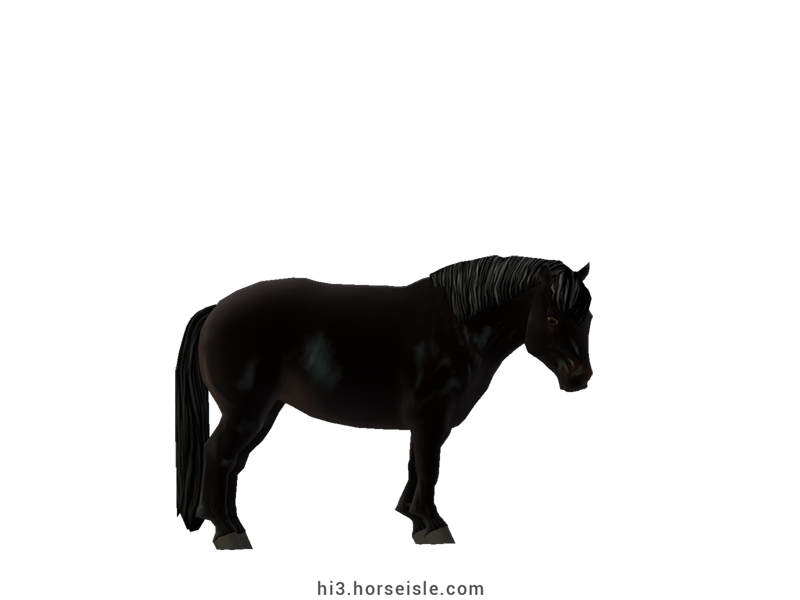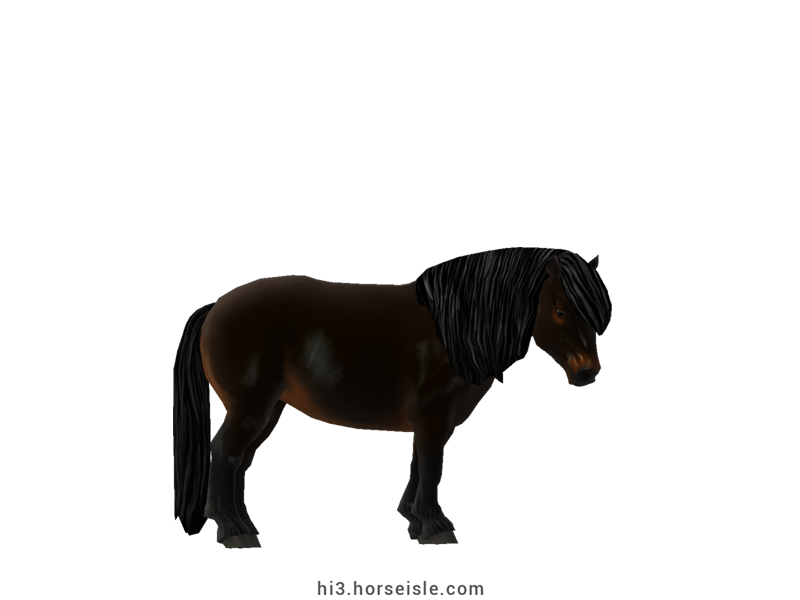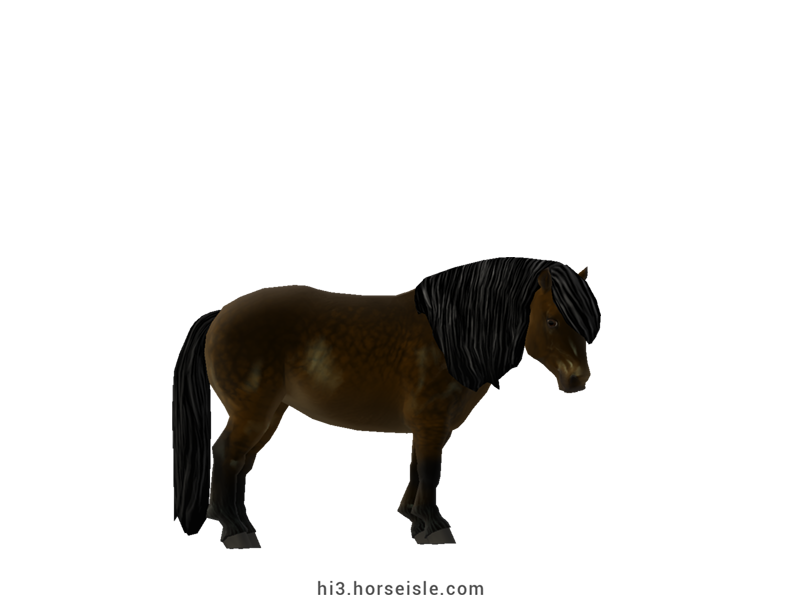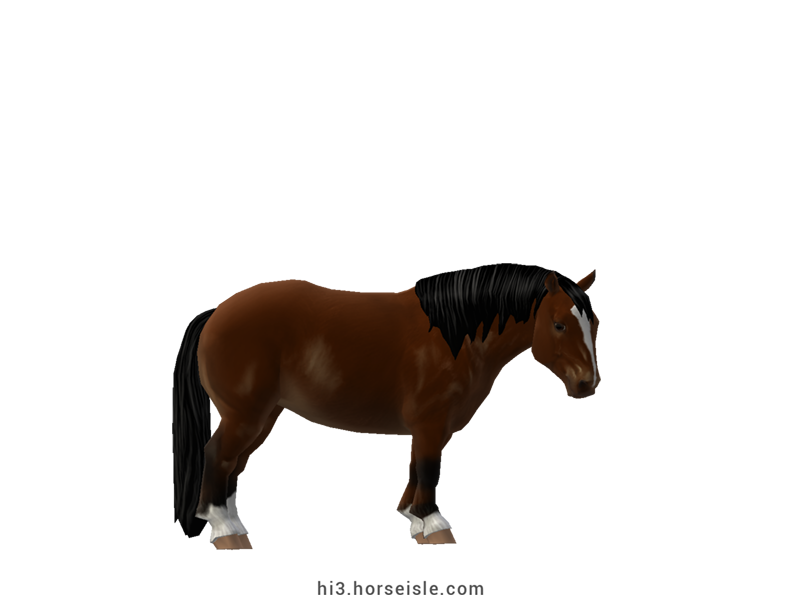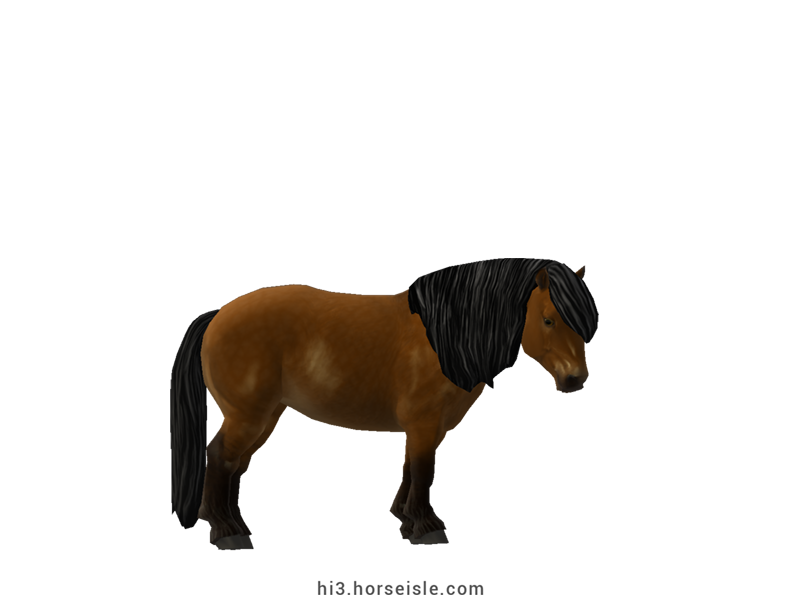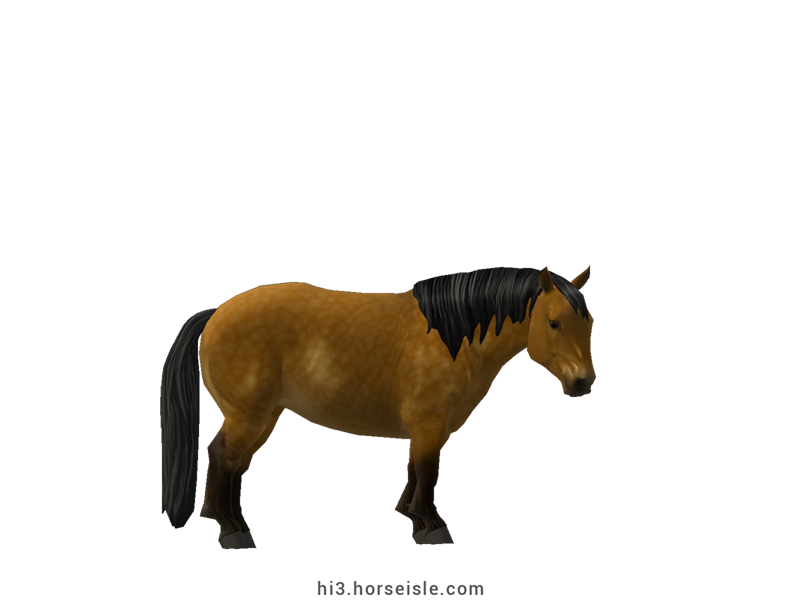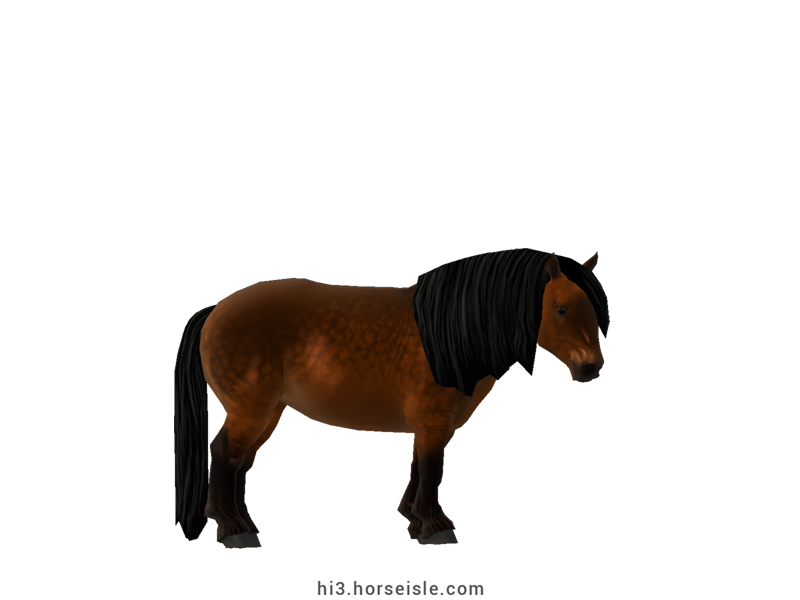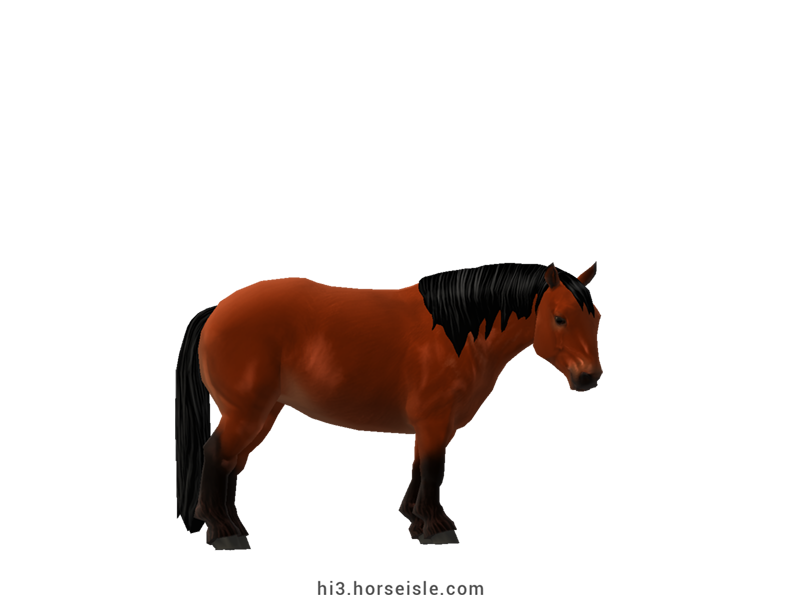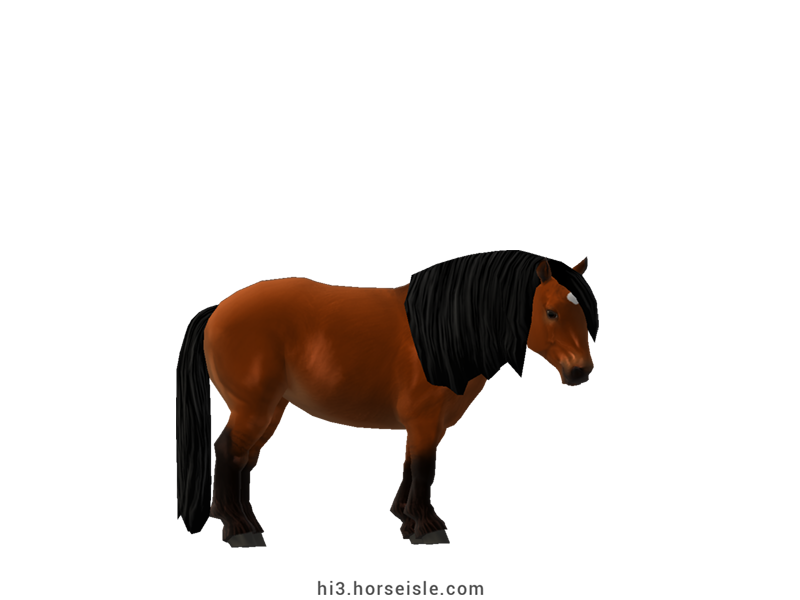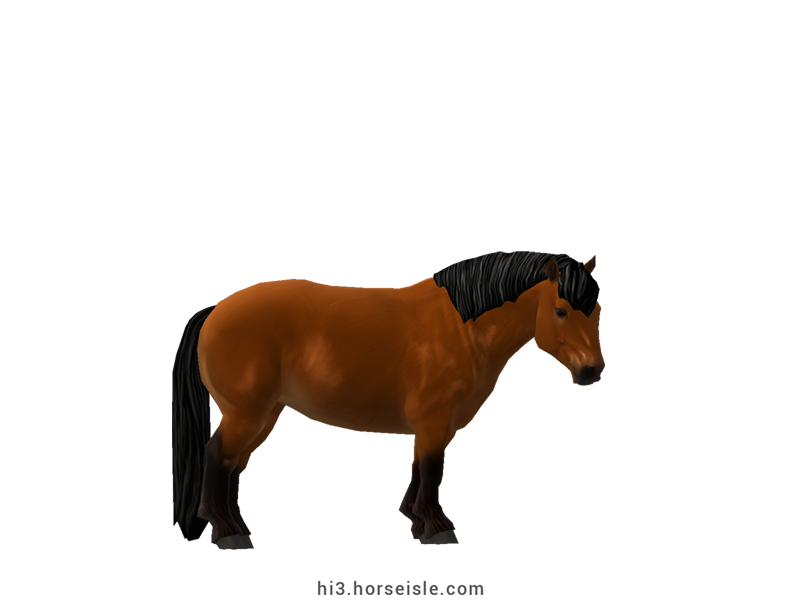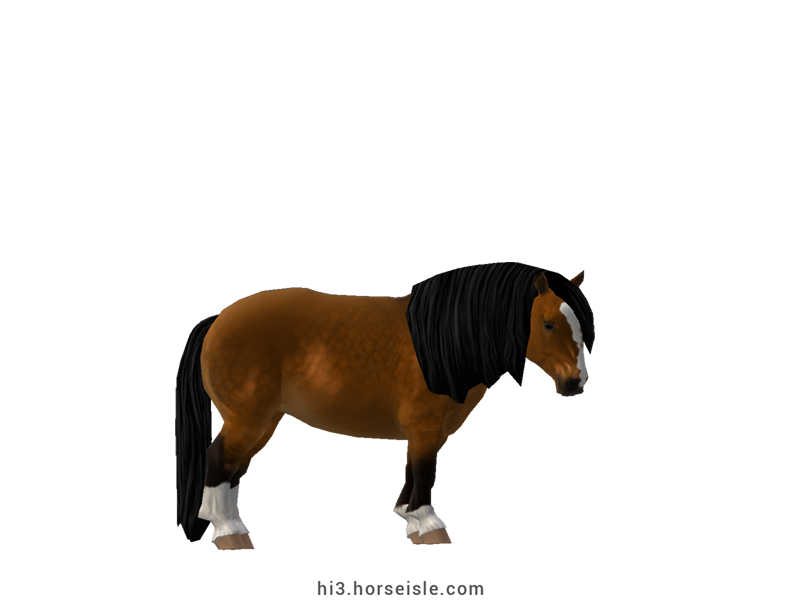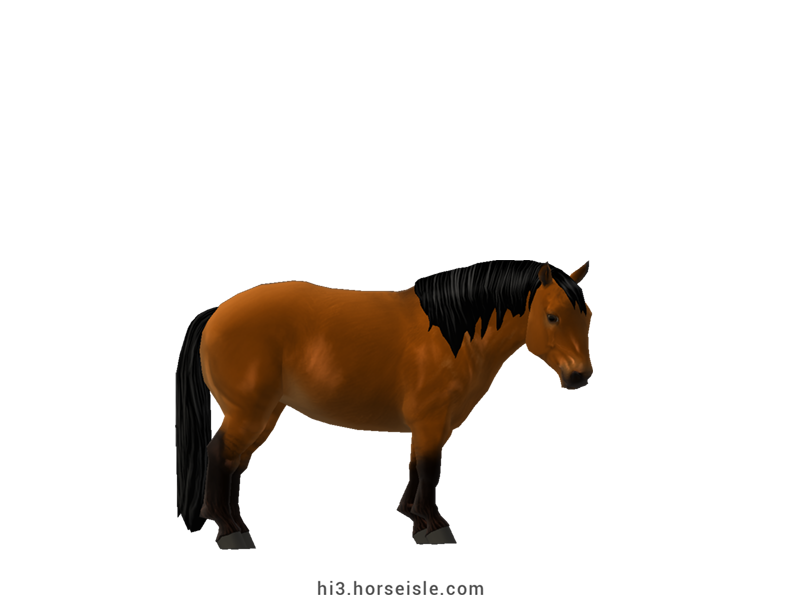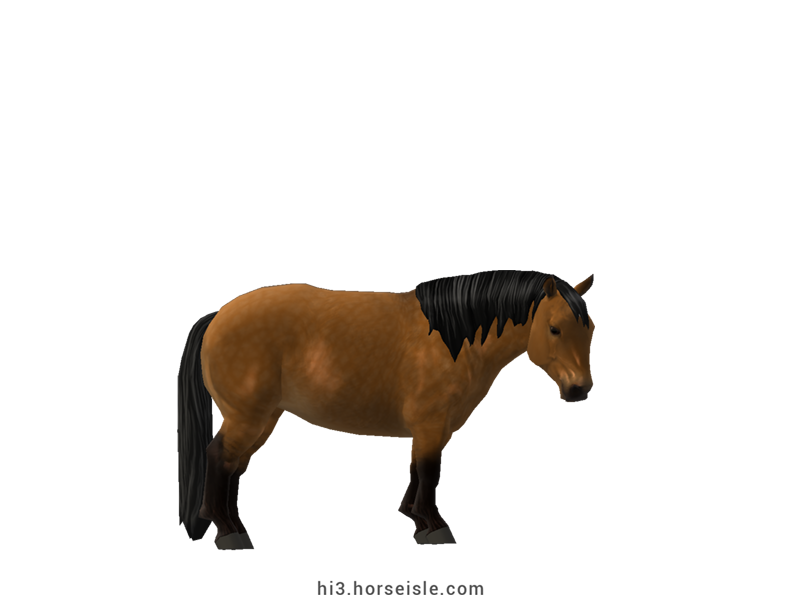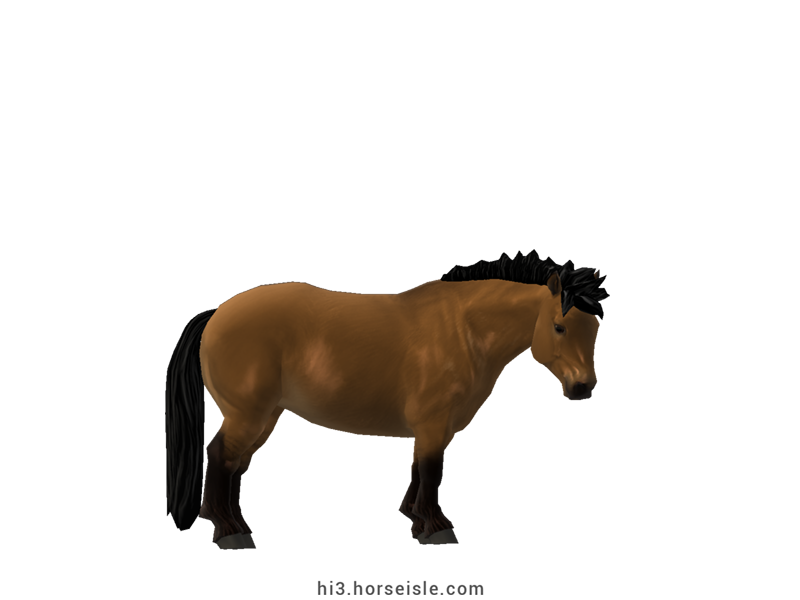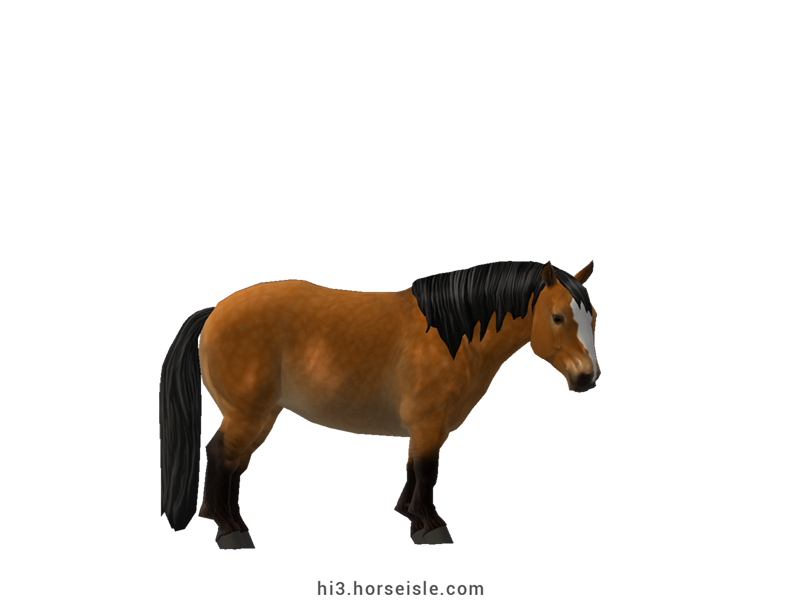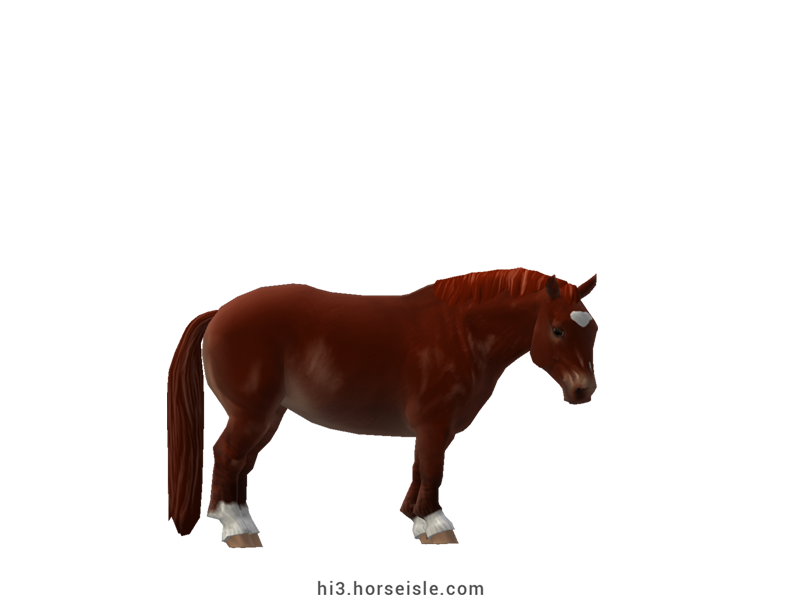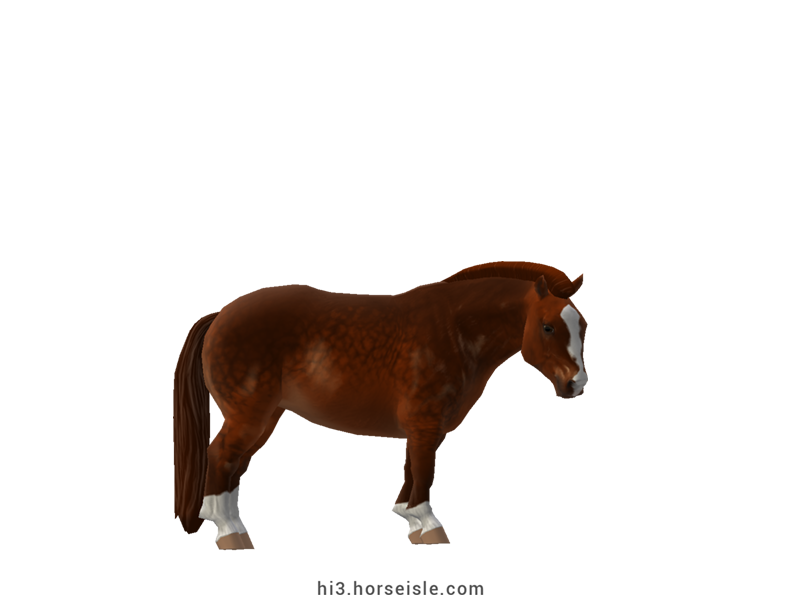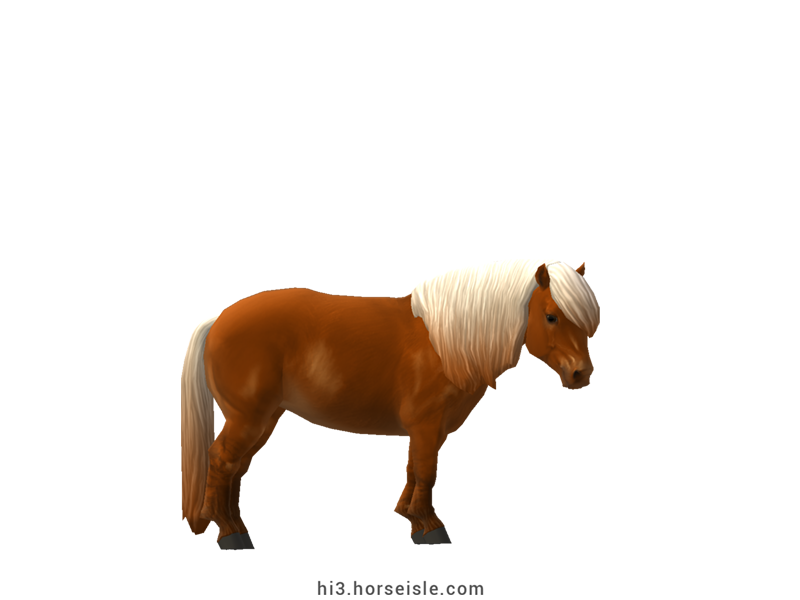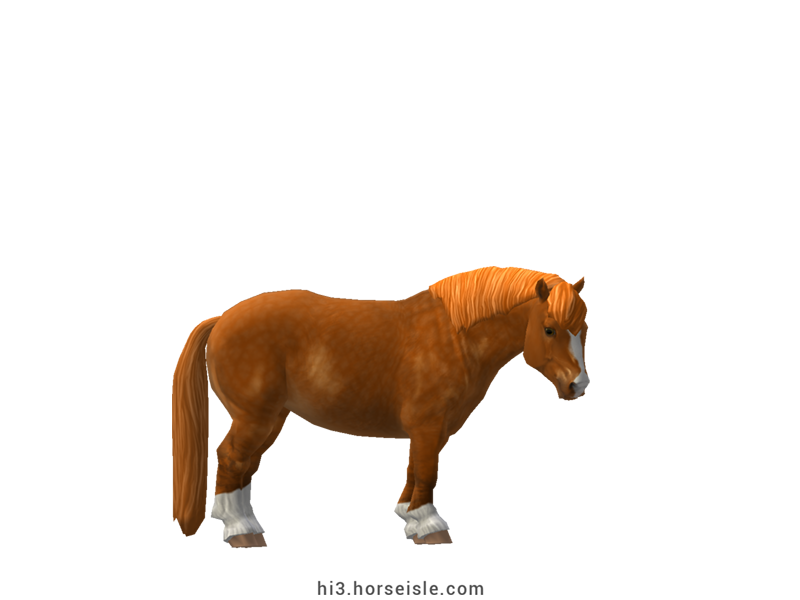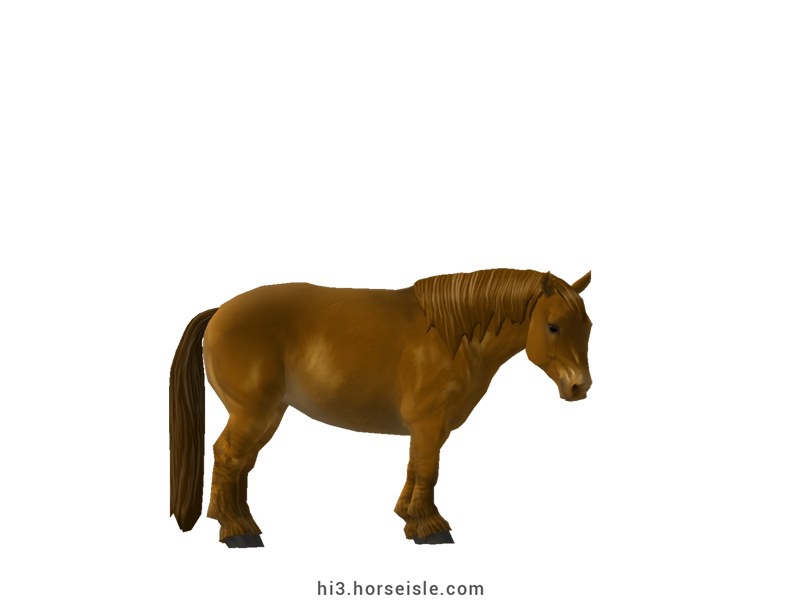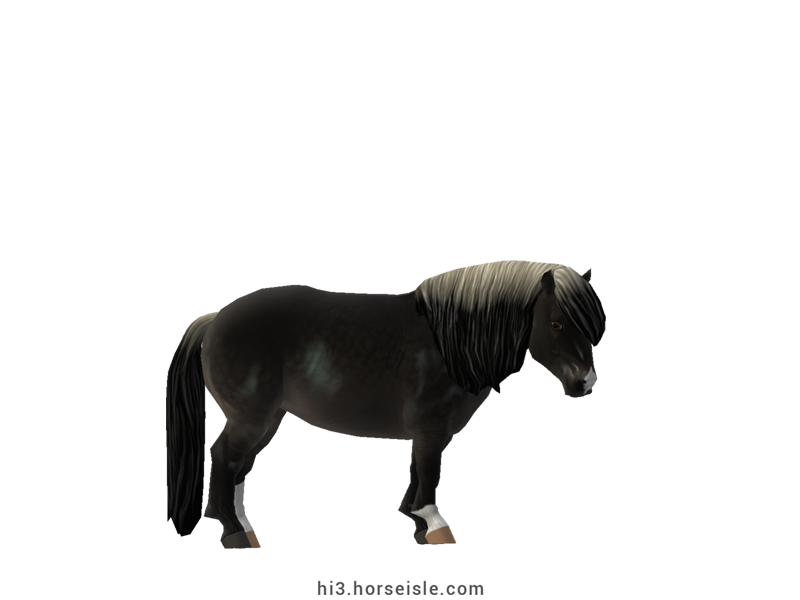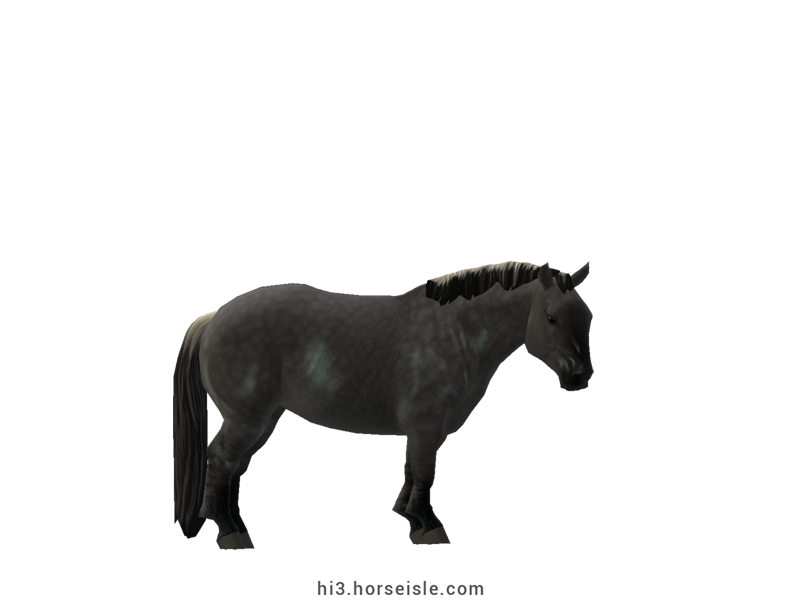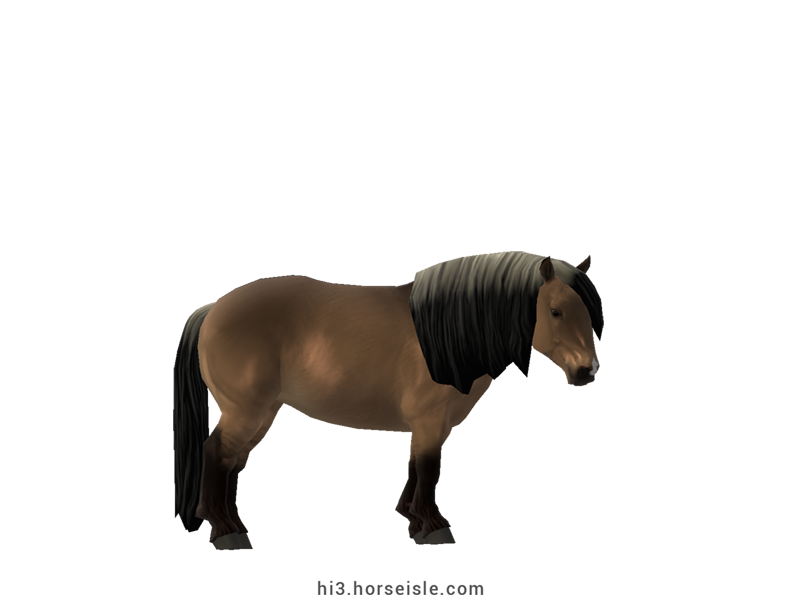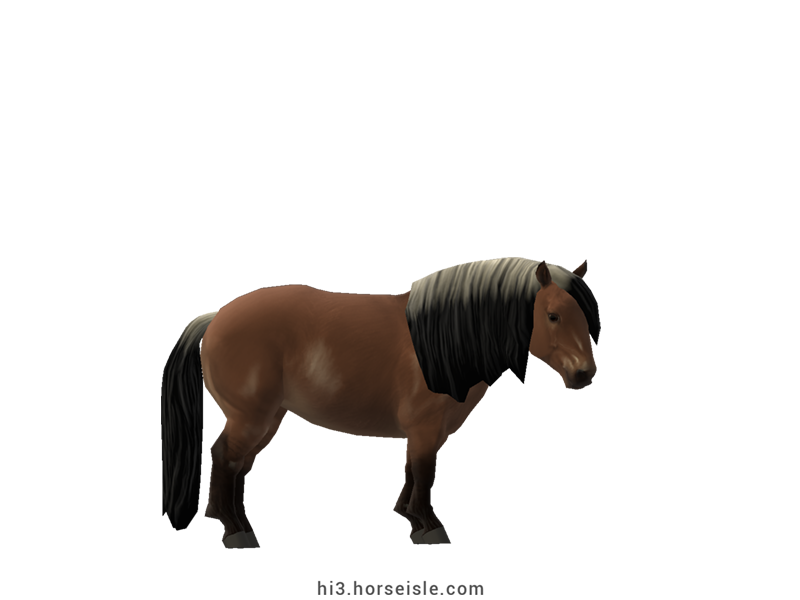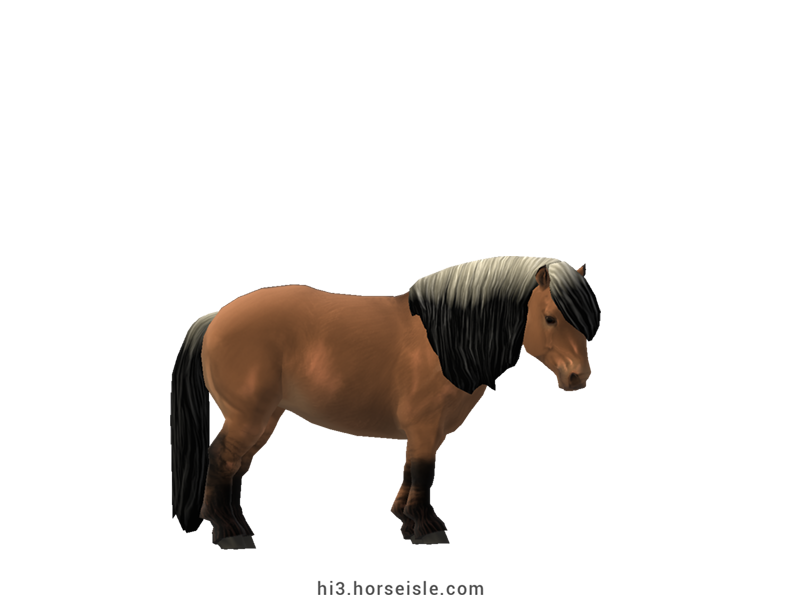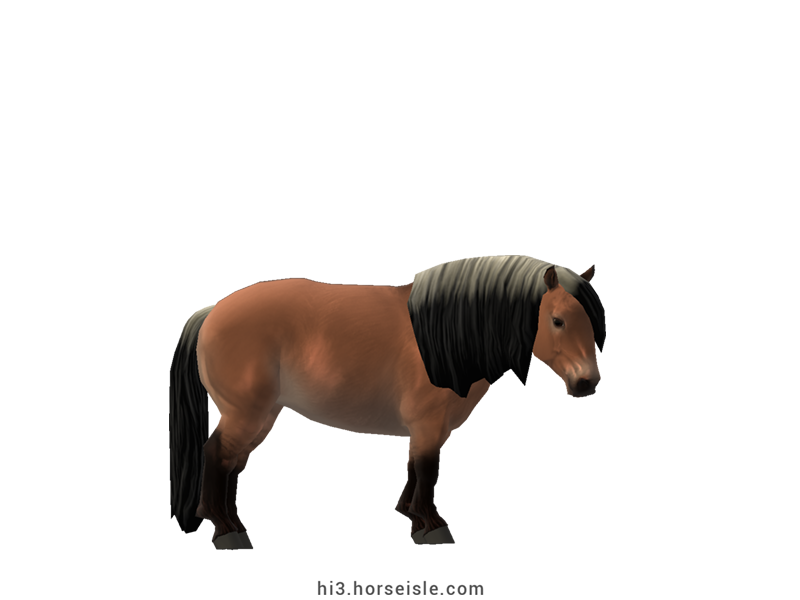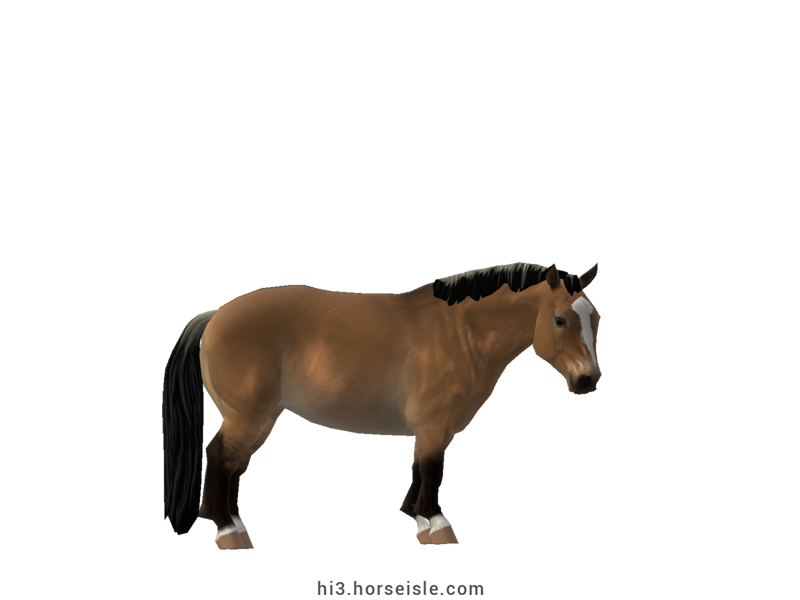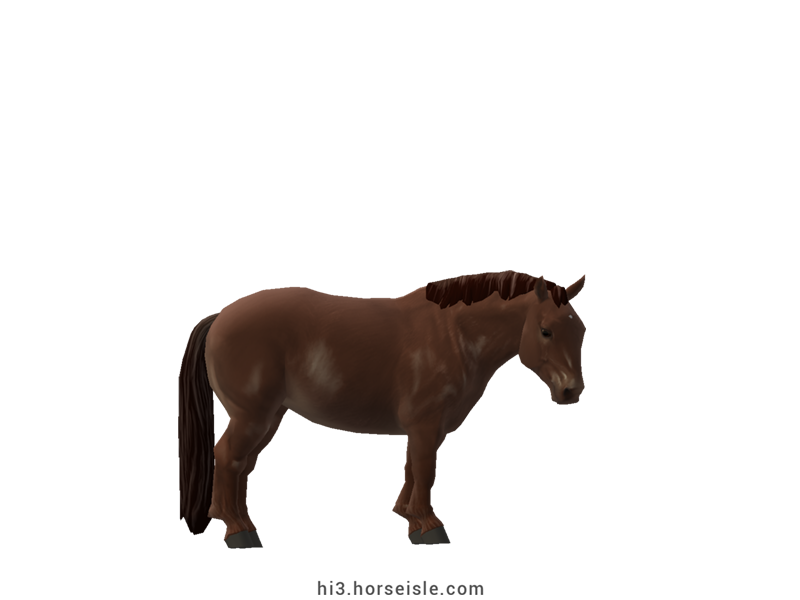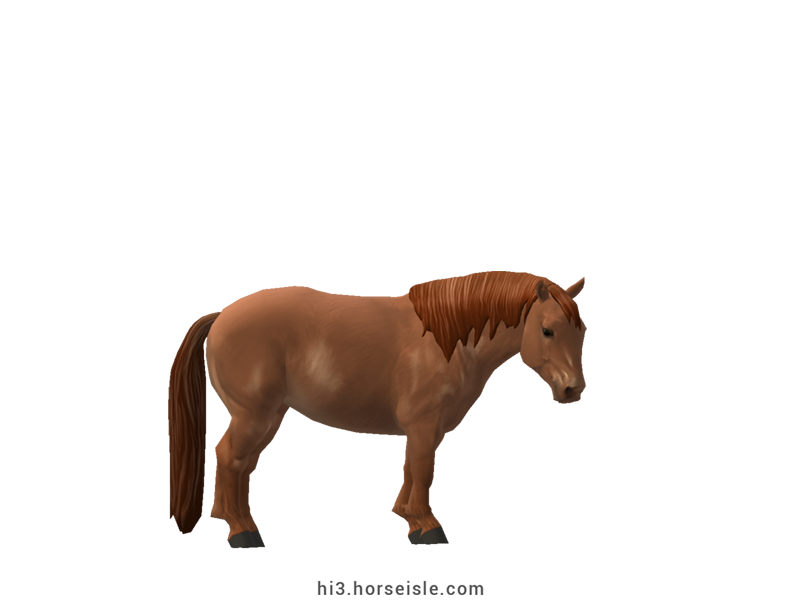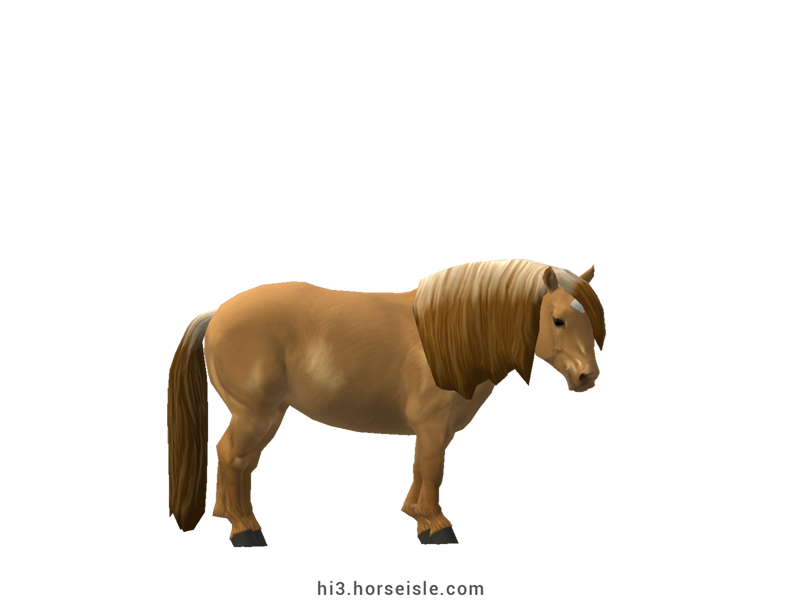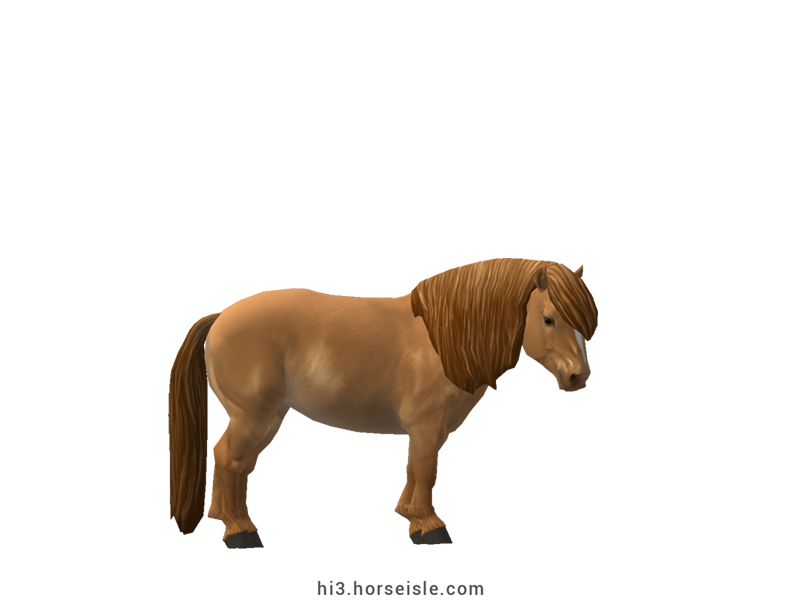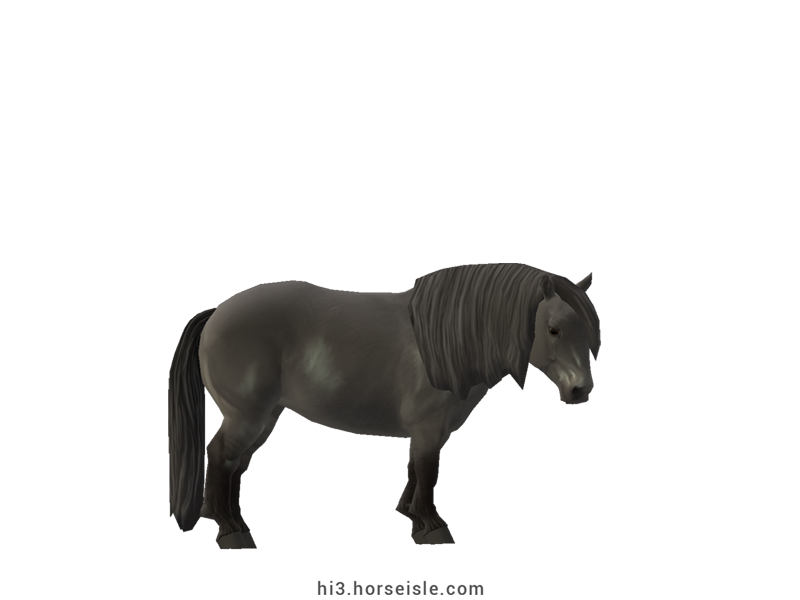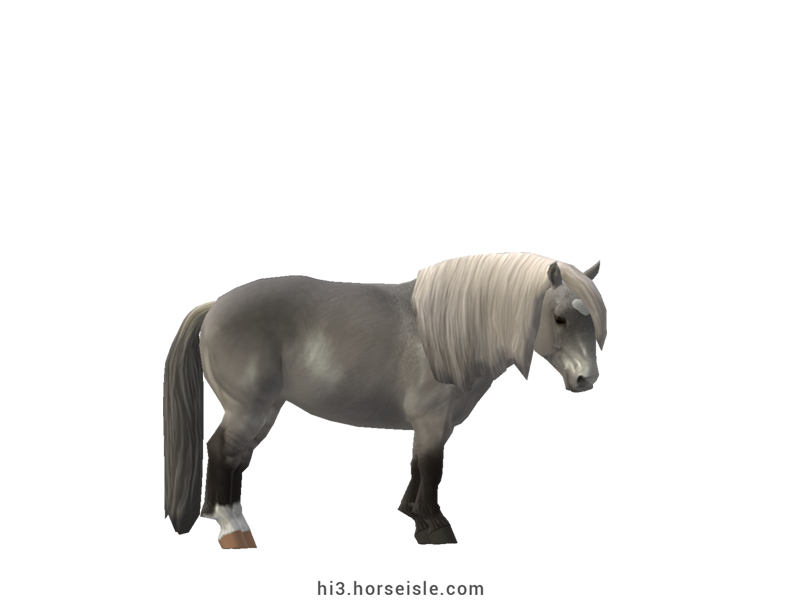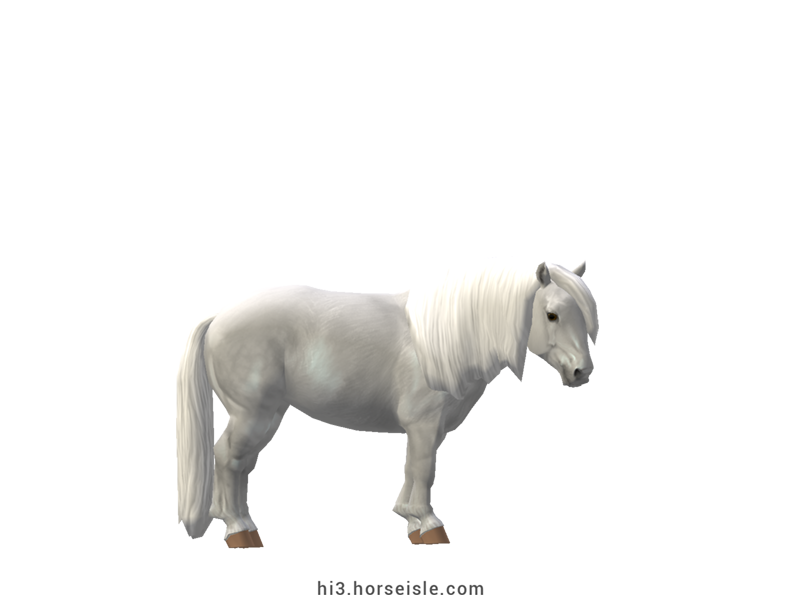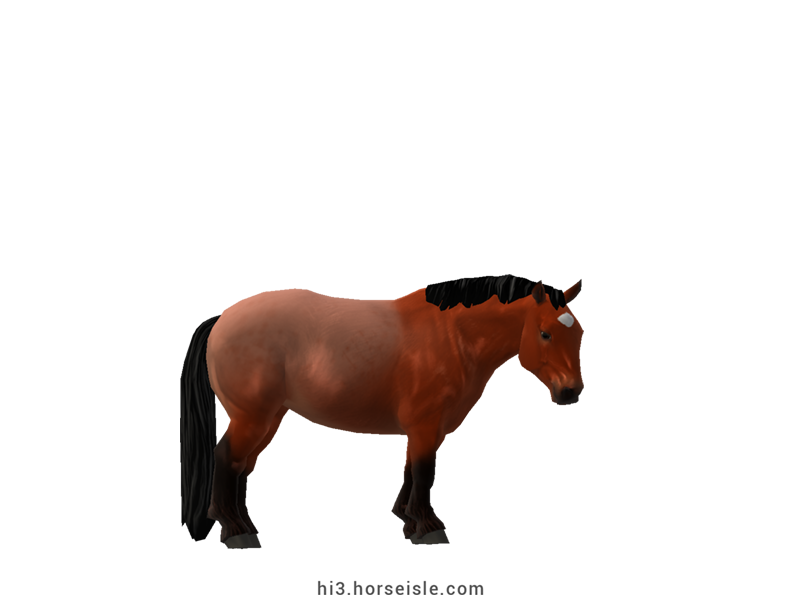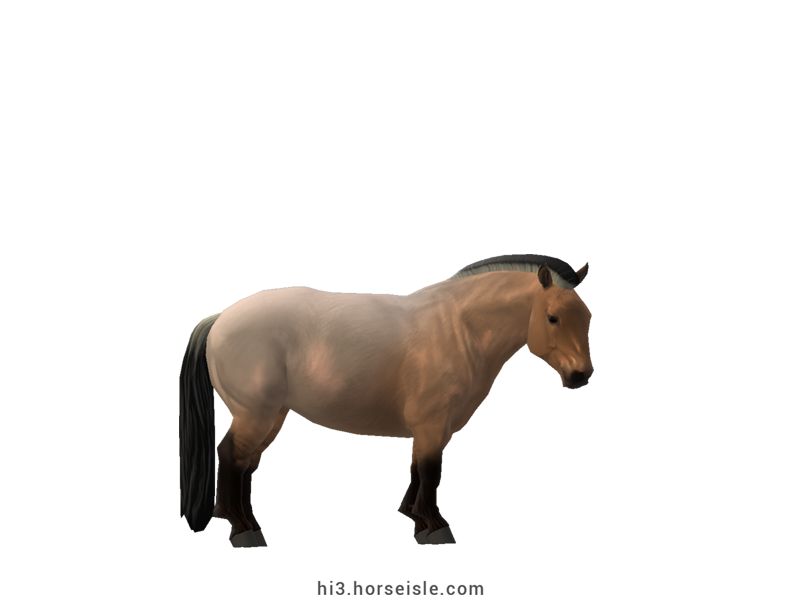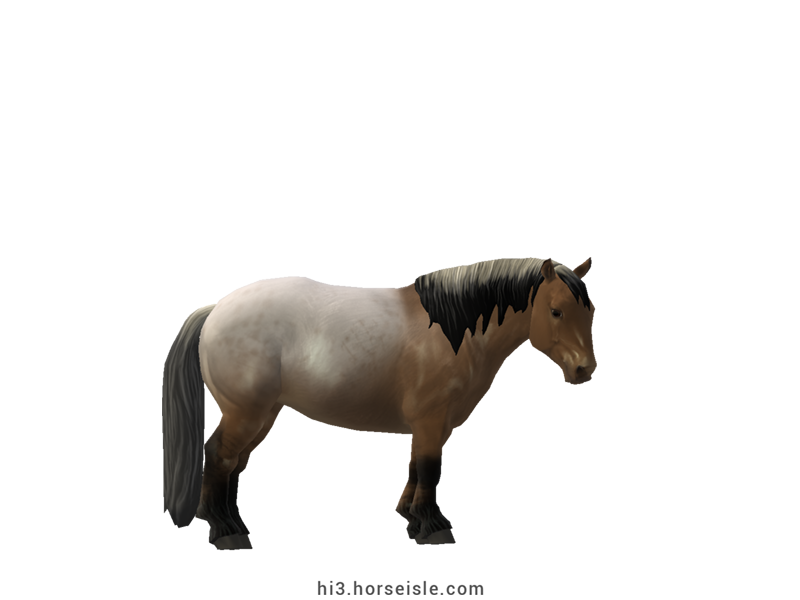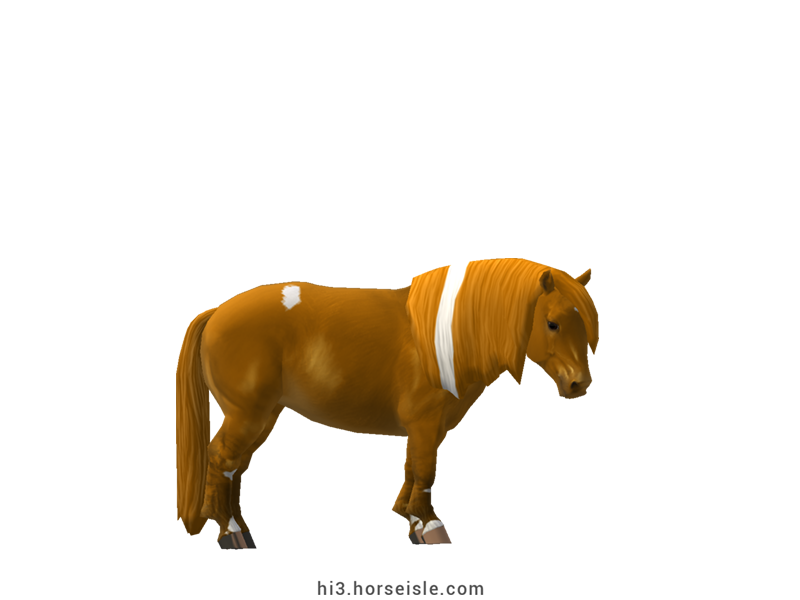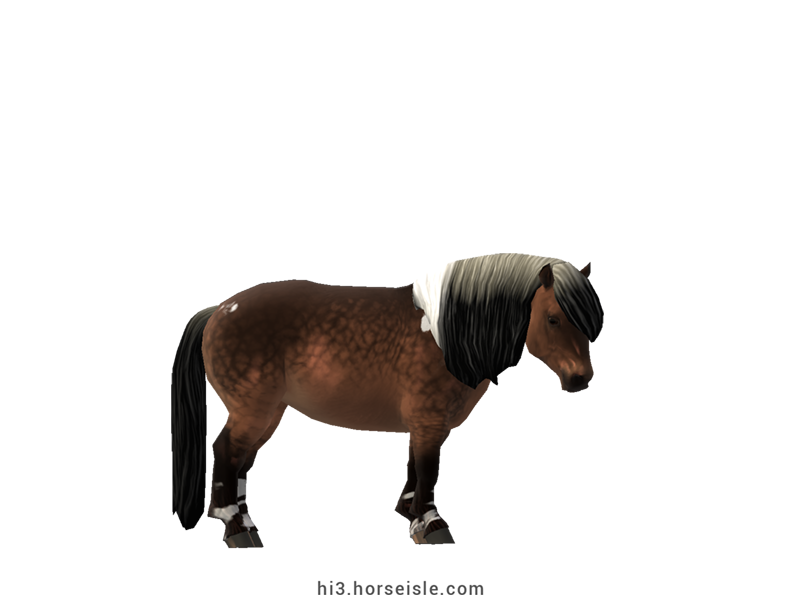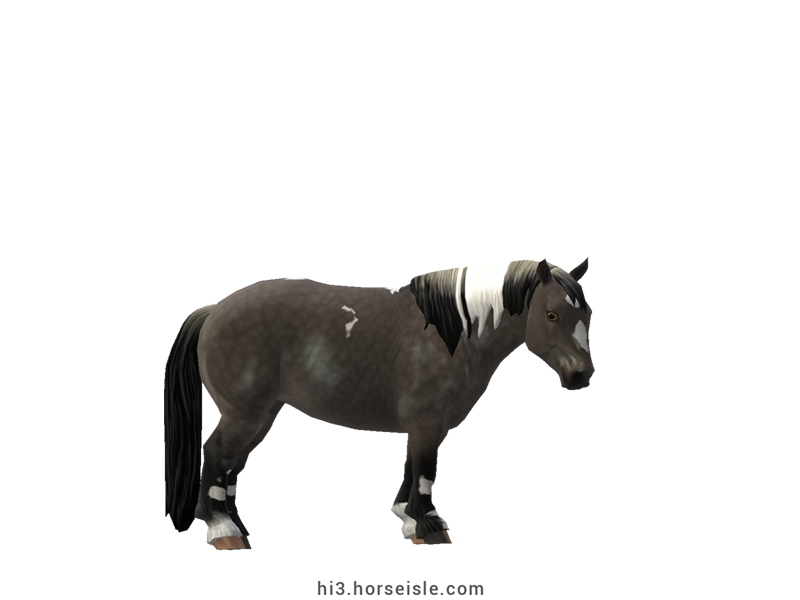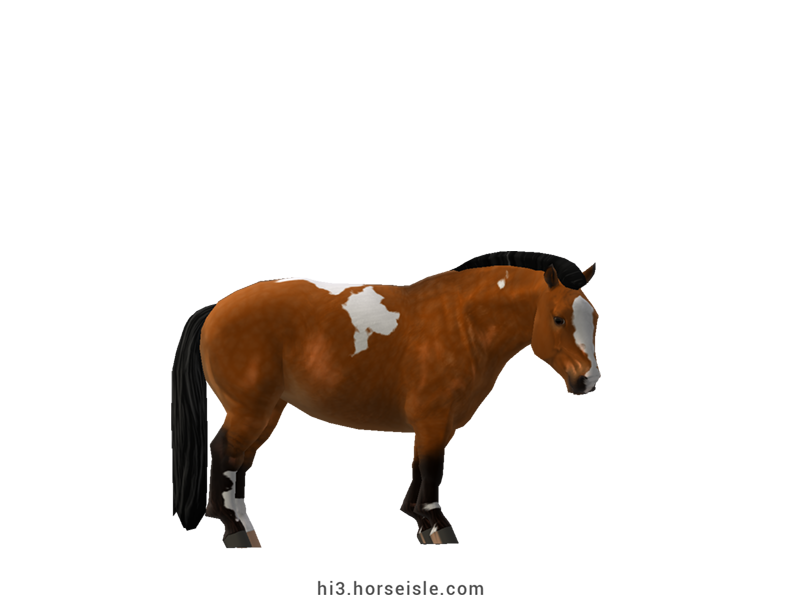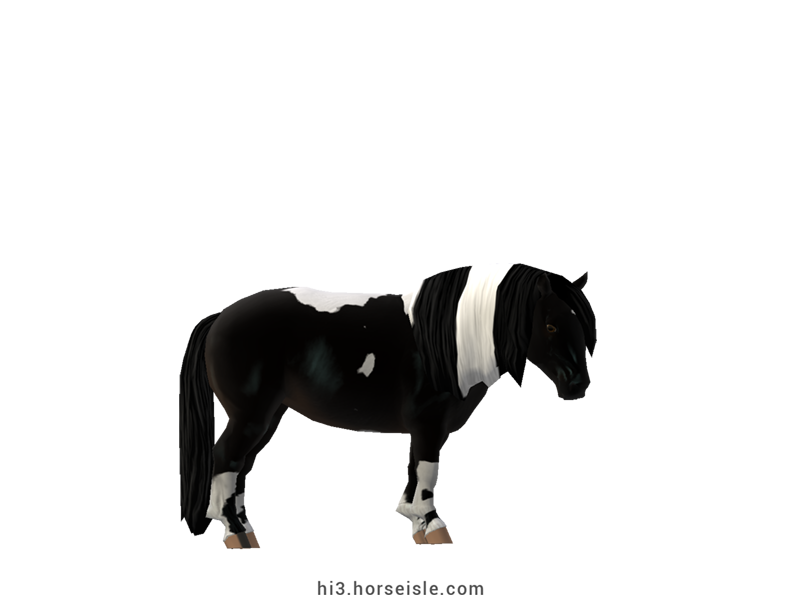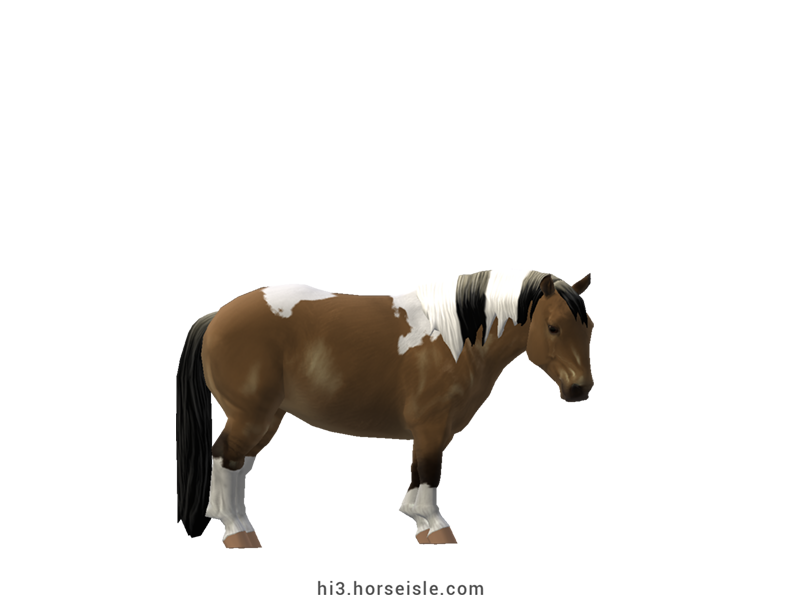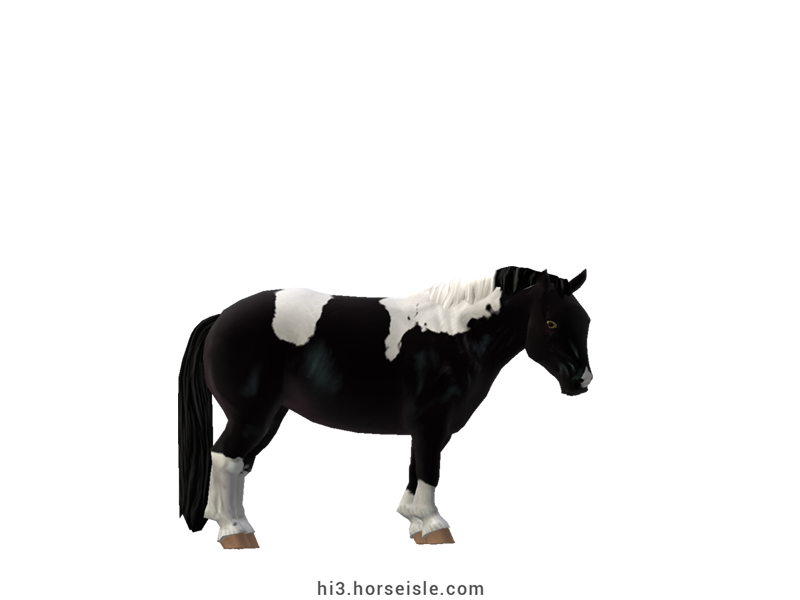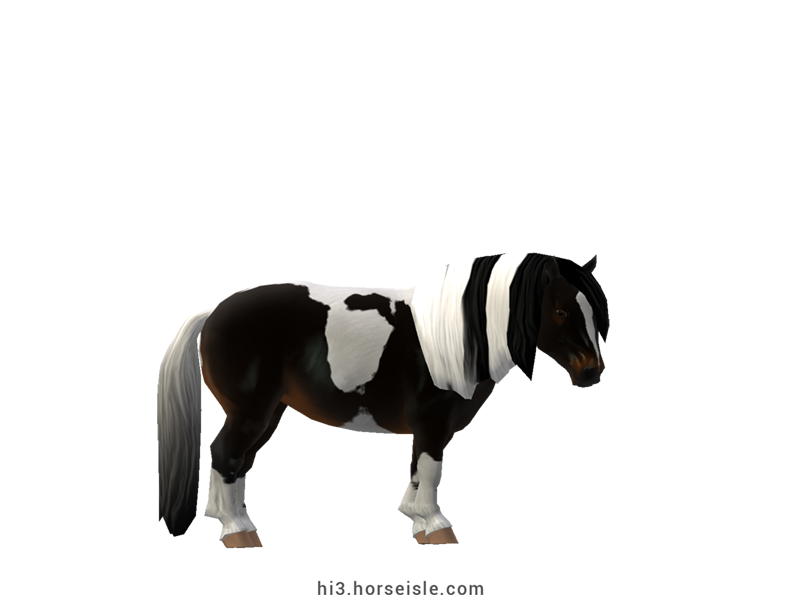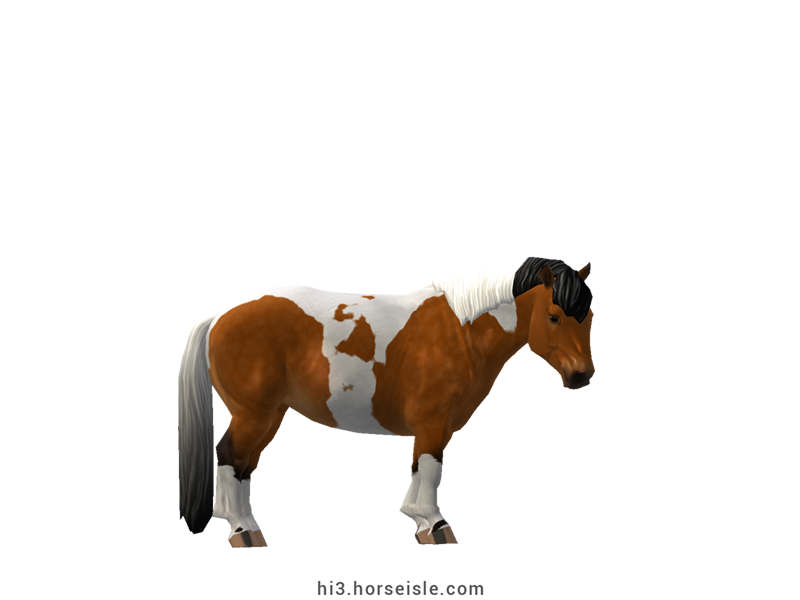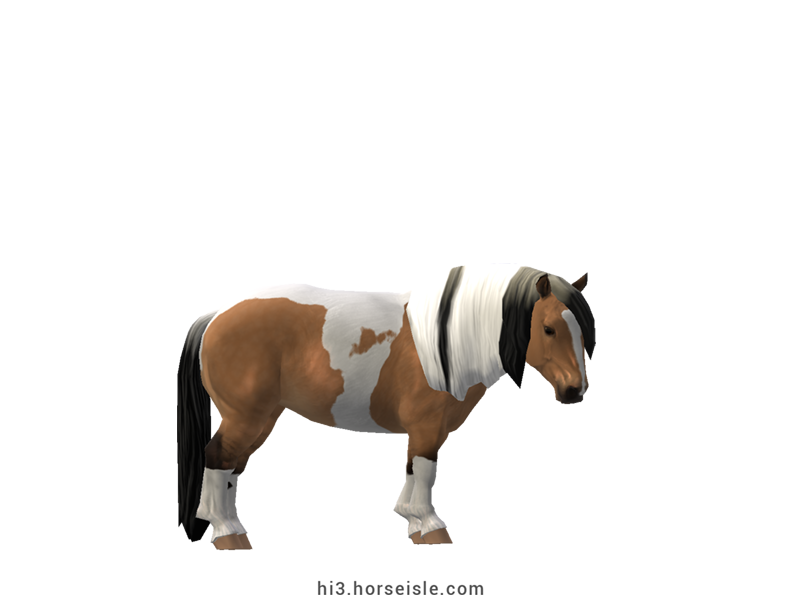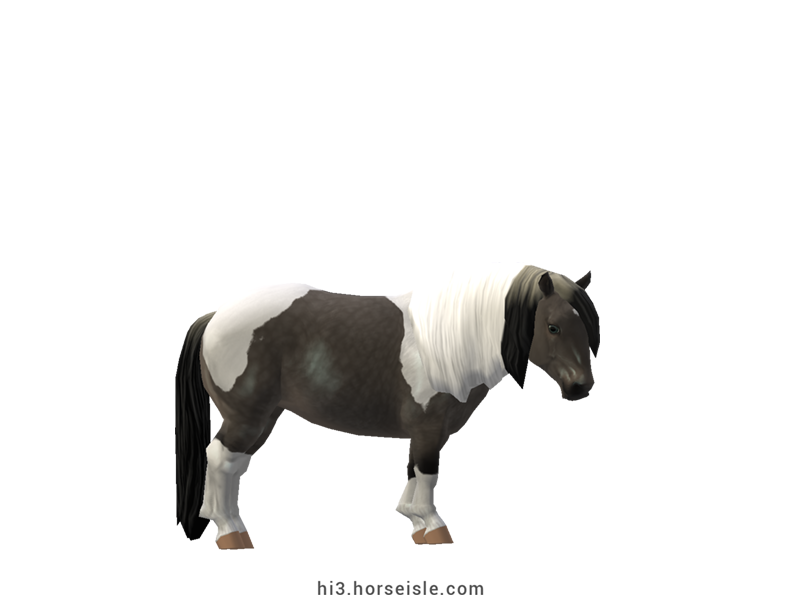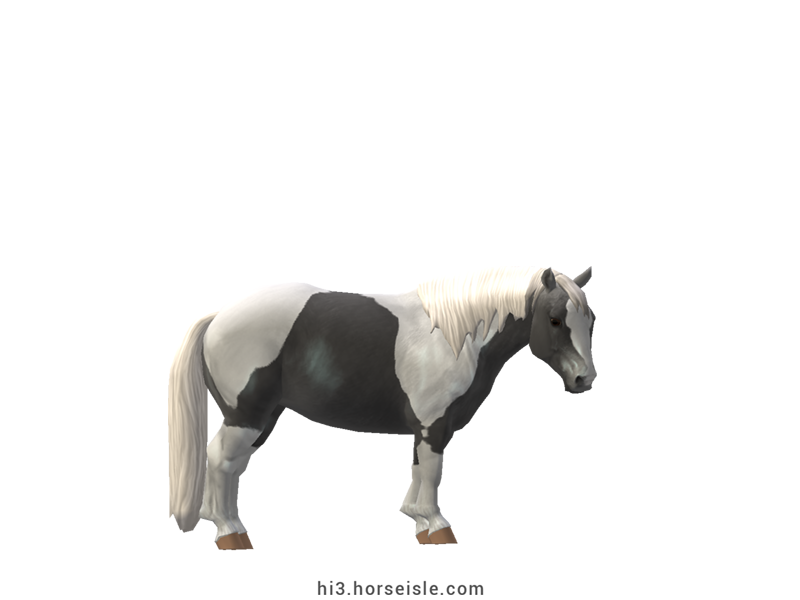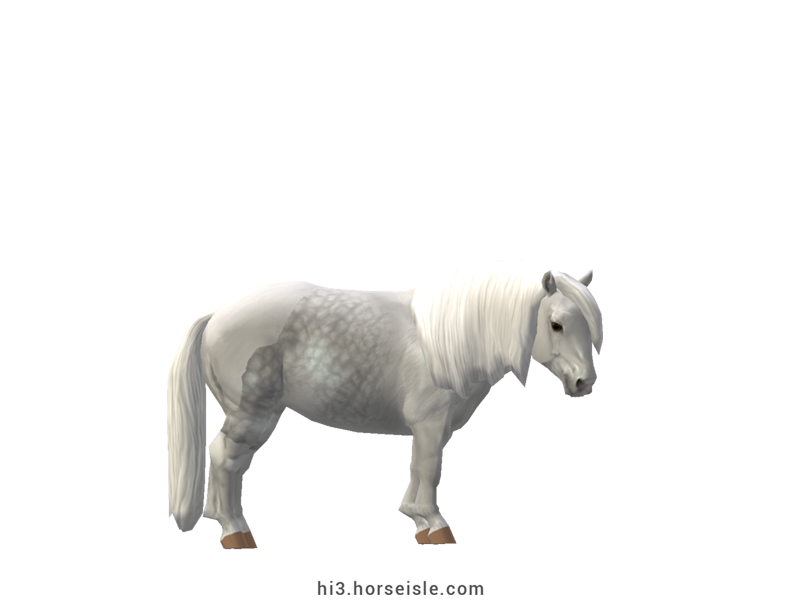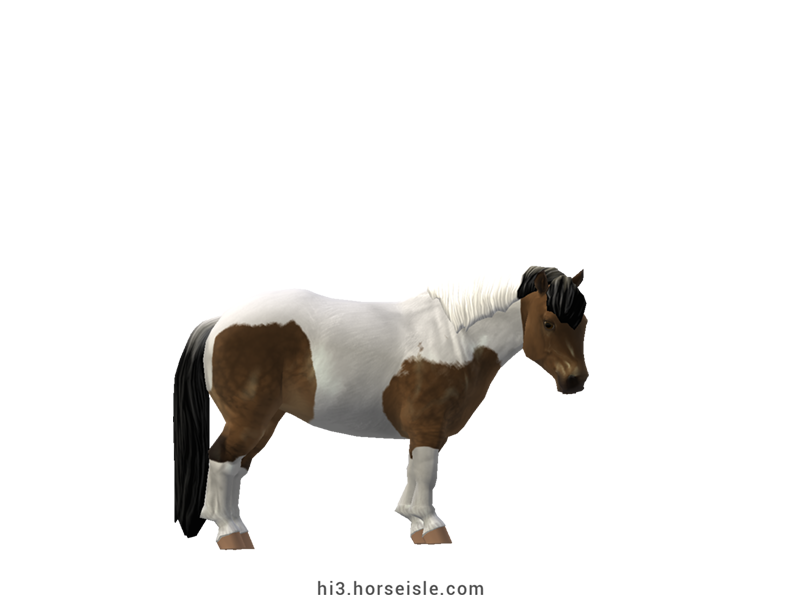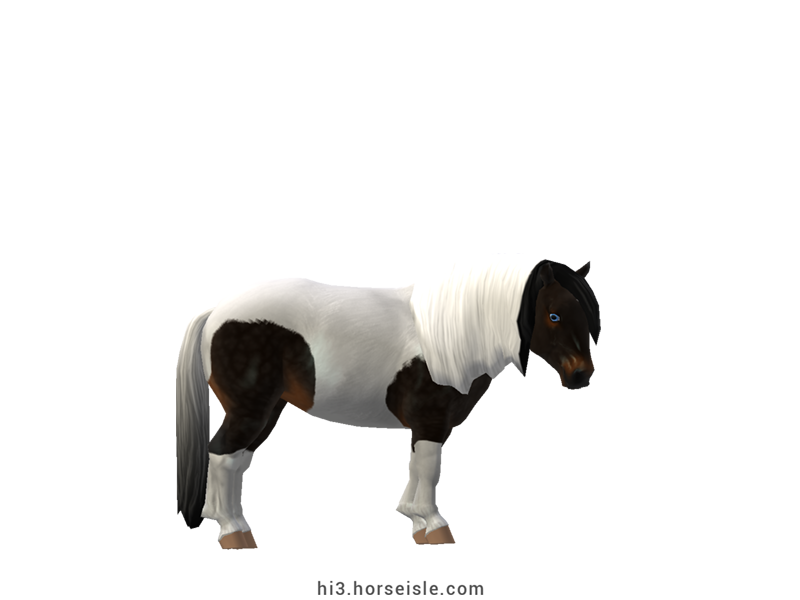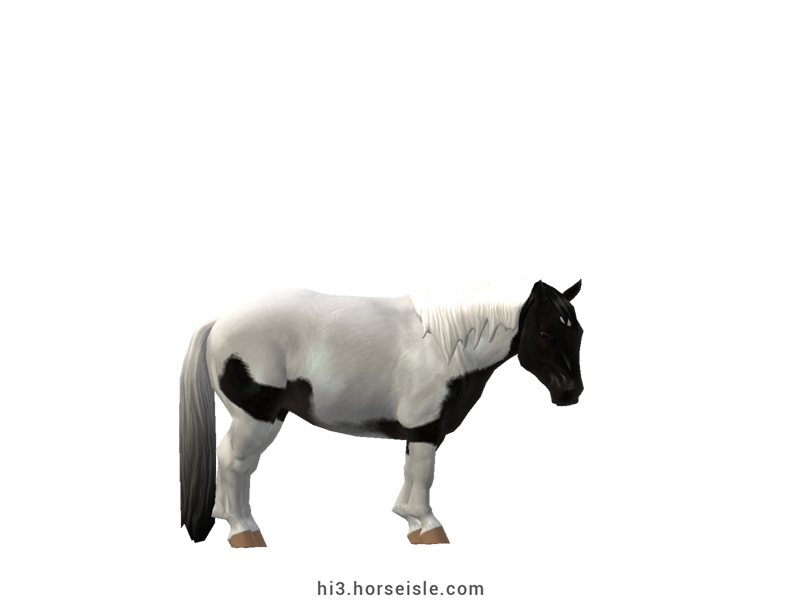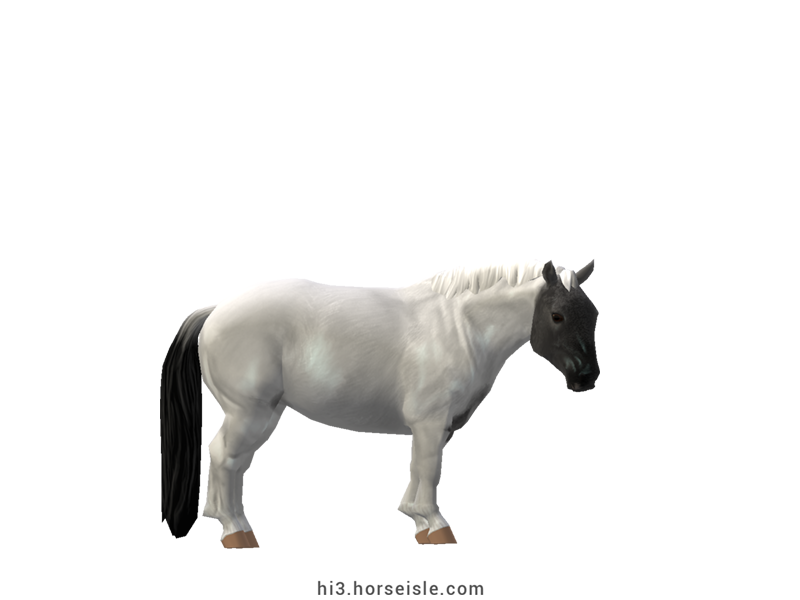Our Massive Real World Equine Reference!
[ INDEX ] Equine Type: Horse Breed: Yakut [ PREV ] [ NEXT ]
The king of the cold:
The ancestors of the Yakut were brought to Yakutia between the 13th and 15th centuries, and were probably of Mongolian origin. Living outdoors all year round, these horses quickly adapted to their new environment. While other breeds would perish in the Yakutian winter, Yakut horses developed a couple of ways to cope with the extreme temperatures, which can be as low as -70C.
Fat is essential:
During the short summer, Yakuts eat as much food as they can find, and store an impressive amount of fat in a short time. This is essential for their survival during the winter when food is scarce, because the stored fat is used to generate both the energy and the heat that they need to survive.
However, there is one problem: if Yakut horses burn too much fat, their stores won't last through the entire winter. To solve this problem, the Yakuts use a number of additional adaptations.
A compact horse with a hardcore coat:
First, Yakuts grow an extremely thick winter coat, which is usually 8-10cm long and is composed of two layers: a thick undercoat that insulates the body of the Yakut, and a second layer that shields the undercoat from the snow and wetness. The mane and tail of Yakut horses also grow long and thick, with the mane often covering their neck and their forelock covering most of their face to keep it all dry and warm.
In addition, Yakuts also have small ears and nostrils, as well as an extremely compact conformation. All of these minimize the surface of their body that is exposed to the outer environment, and further reduce heat loss.
Lower metabolic rate:
The ability to retain heat means that Yakut horses don't need to burn a lot of fat in order to keep their body's temperature stable. Therefore, Yakuts reduce their metabolic rate by nearly half, to prevent their bodies from burning fat unnecessarily.
One way to tell that their metabolism rate is low is to count the number of breaths they take per minute; during summer, when their metabolic rate is normal, Yakuts breathe ~20 times per minute, while in the winter they breathe only ~10 times per minute.
Sensitive nose, tough hooves:
Even though their metabolic rate is lower during winter, and even though Yakut people do provide their horses with some food at this time, Yakut horses still need to forage by themselves. This is where two other adaptations of the Yakut horses come into play.
First, they have an outstanding sense of smell, which allows them to smell and locate grass that is buried beneath the snow. Second, their hooves are tough enough to allow them to dig for the grass in the snow and the frozen soil.
Coolest of all: antifreeze superpower!
Smelling and digging in the snow means that the muzzle and legs of Yakut horses are often in close contact with the cold, which puts them at risk of freezing. To protect them, during the winter, the body of Yakut horses generates antifreeze compounds that prevent them from freezing.
The best horse in Yakutia
Thanks to their adaptations, Yakut horses can survive in the Yakutian outdoors all year long. They are favored by the Yakut people, for everything from milk production to riding. To add to their awesomeness, some Yakut horses are natural amblers who perform the running-walk, which makes them extra comfortable to ride.
Subtypes:
There are three subtypes of Yakut horses, each has its own lineage and height range, and all are found in Horse Isle.
The first is the Middle Kolyma Yakut, which is considered to be the original form of the Yakut horse, and stands between 13.2hh and 13.3hh. The second is the Smaller Southern Yakut, which stands between 13hh and 13.1hh.
The third is the Larger Southern Yakut, which is the only non-pure form of the Yakut because it underwent a bit of crossbreeding in the past with trotter and draft breeds. It stands between 13.2hh and 14hh, making it the tallest subtype of the Yakut.
Conformation:
As mentioned above, one of the adaptations of the Yakut to the cold climate is their compact build. This conformation is characterized by a short head with a small muzzle and small nostrils, small ears, a straight profile, a short neck, unobtrusive withers, a short back, a sloping croup, and very short legs that are covered with some feathering.
Performance metrics:
The following are the: range, average, (SD), and MOE of performance metrics of ordered Yakuts in Horse Isle (not bred ones). In rare cases,
Speed: 12.2-13.4, 12.8 (0.3), 0.05.
Sprint: 32-45, 39 (3), 0.54.
Accel: 0.82-0.99, 0.92 (0.04), 0.01.
Decel: 0.82-0.96, 0.89 (0.03), 0.01.
Jump: 4.33-4.63, 4.46 (0.06), 0.01.
Pull: 1.89-2.44, 2.15 (0.13), 0.03.
Turning: 40.94-55.26, 48.26 (3.02), 0.59.
Reverse: 2.1-2.8, 2.4 (0.1), 0.03.
Stamina: 53.42-57.83, 55.55 (1.06), 0.21.
Reaction: 0.64-0.76, 0.70 (0.03), 0.01.
Coats & Height:
Colors: usually dun or grey, but also bay, brown, black, and, more rarely, chestnut.
Additionals: flaxen, linebacked, mealy, roan, sooty, dark mane & tail. The coat is either solid or tobiano.
Height: 13hh to 14hh.
[ INDEX ] [ PREV ] [ NEXT ]

